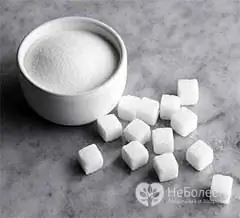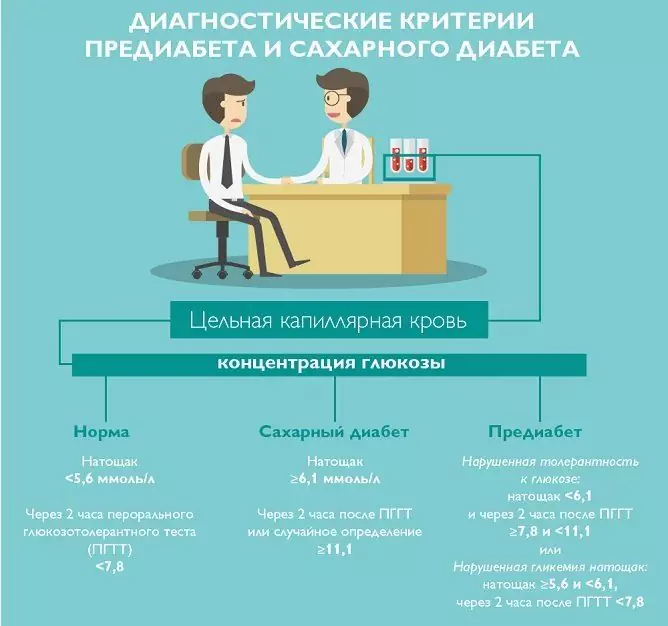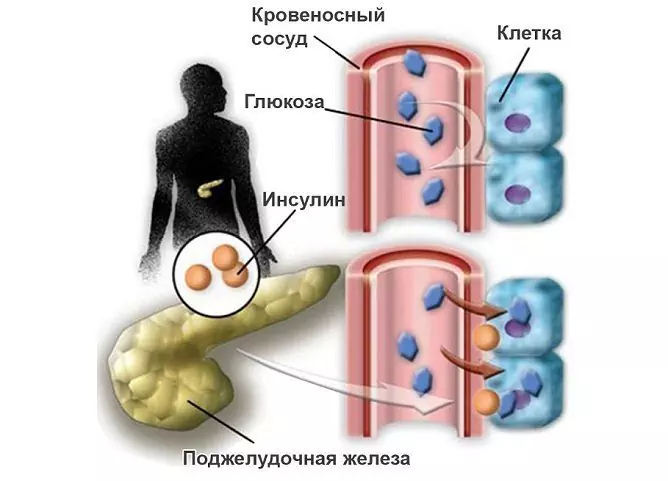- Author Rachel Wainwright wainwright@abchealthonline.com.
- Public 2023-12-15 07:39.
- Last modified 2025-11-02 20:14.
What does glucose do in the body

Glucose acts as a fuel in the body. It is the main source of energy for cells, and the ability of cells to function normally is largely determined by their ability to metabolize glucose. It enters the body with food. Food products are broken down in the gastrointestinal tract to molecules, after which glucose and some other breakdown products are absorbed, and undigested residues (slags) are excreted using the excretory system.
In order for glucose to be absorbed in the body, some cells need a pancreatic hormone - insulin. Insulin is usually compared to a key that opens the door to the cell for glucose, and without which it cannot get there. If there is no insulin, most of the glucose remains in the blood in an undigested form, while the cells starve and weaken, and then die of hunger. This condition is called diabetes mellitus.
Some of the body's cells are insulin-independent. This means that glucose is absorbed directly in them, without insulin. The tissues of the brain, red blood cells and muscles are composed of insulin-independent cells, which is why, with insufficient intake of glucose in the body (that is, with hunger), a person soon begins to experience difficulties with mental activity, becomes anemic and weak.
However, much more often modern people are faced not with a deficiency, but with an excess intake of glucose into the body as a result of overeating. Excess glucose is converted into glycogen, a kind of "canning store" of cellular nutrition. Most of the glycogen is stored in the liver, with a smaller part in skeletal muscle. If a person does not eat for a long time, the process of splitting glycogen in the liver and muscles starts, and the tissues receive the necessary glucose.

If there is so much glucose in the body that it can no longer be used for the needs of tissues or utilized in glycogen stores, fat is formed. Adipose tissue is also a "storehouse", but it is much more difficult for the body to extract glucose from fat than from glycogen, this process itself requires energy, which is why it is so difficult to lose weight. If you need to break down fat, then the presence of … that's right, glucose is desirable, to ensure energy consumption.
This explains the fact that diets for weight loss should include carbohydrates, but not any, but difficult to digest. They are broken down slowly, and glucose enters the body in small quantities, which are immediately used to meet the needs of the cells. Easily digestible carbohydrates immediately inject an excessive amount of glucose into the bloodstream, there is so much of it that it must be immediately utilized in fat depots. Thus, glucose in the body is extremely necessary, but it is necessary to provide the body with glucose reasonably.
Found a mistake in the text? Select it and press Ctrl + Enter.






